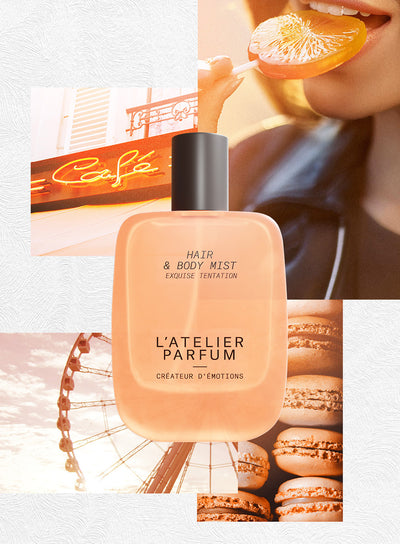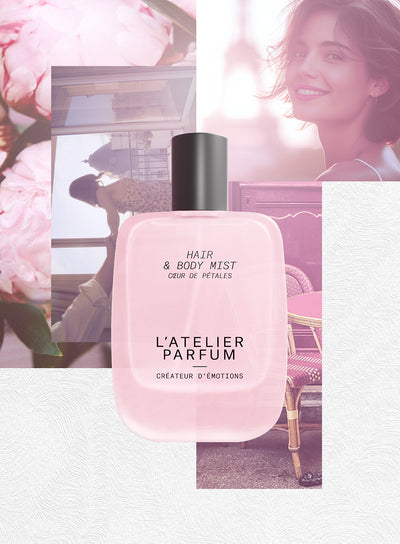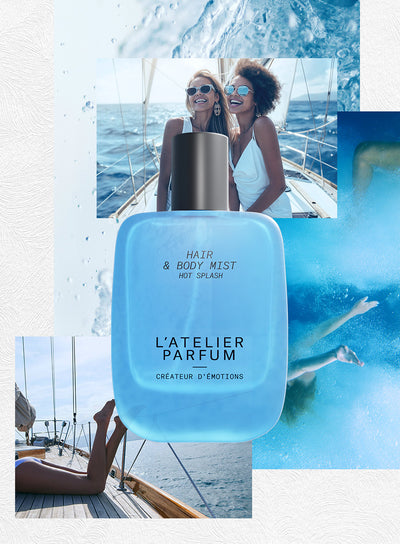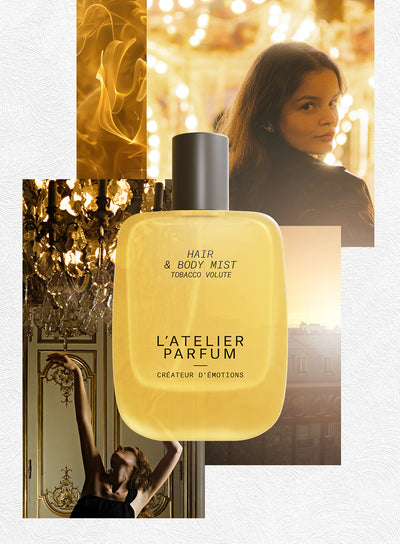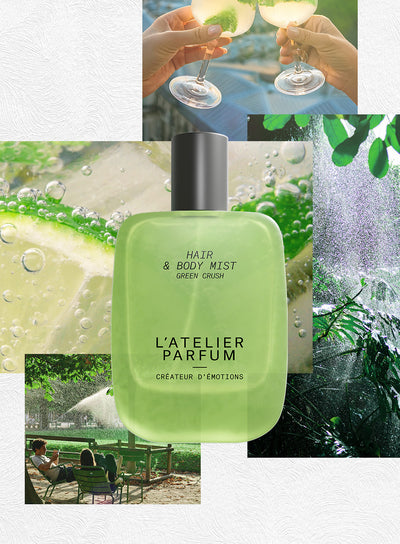- Histoire, Techniques
- L'Atelier Parfum
The Perfumer’s Craft: Between Art, Science, and Passion
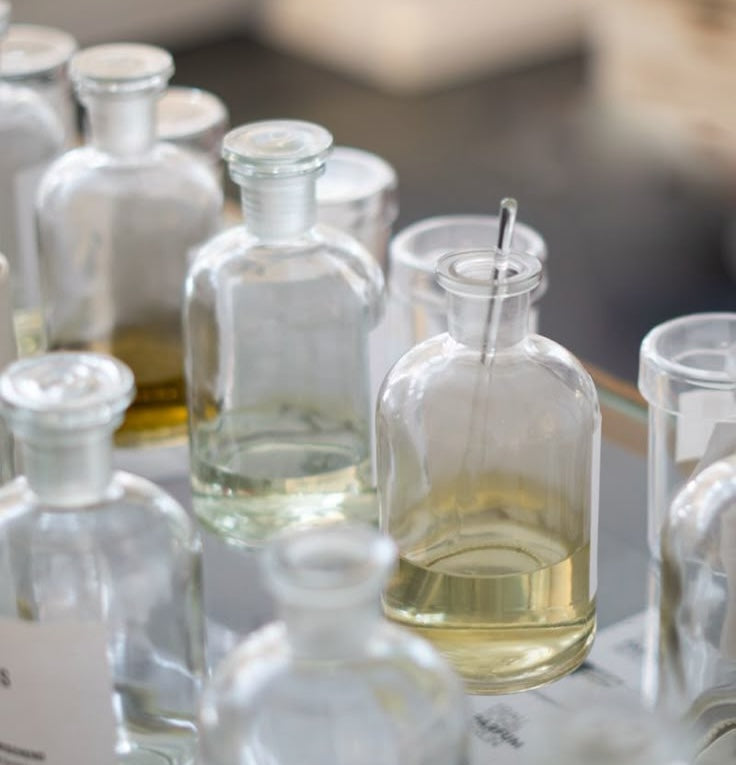
The profession of the perfumer, often called “the nose,” captivates with its mystery and prestige. Behind every iconic fragrance lies a creator with a unique talent, capable of blending hundreds of essences to awaken unforgettable olfactory emotions. But who are these behind-the-scenes artisans, how do they become masters of their craft, and what is the reality of this exceptional profession? Let’s delve into the fascinating world of perfumery.
History and Evolution of the Perfumer’s Craft
Prestigious Origins
The art of perfumery dates back several centuries. As early as 1651, Louis XIV granted the title of “Master Glove-Maker-Perfumer,” officially recognizing the value of this skill in French society. At the time, scenting leather goods was common, but the profession quickly evolved into an independent art, closely tied to luxury and innovation.
Industrial Growth and French Renown
In the 19th century, French perfumery rose to prominence at World’s Fairs and International Exhibitions. The 1900 Paris Exposition marked a turning point: France won the majority of awards and medals, asserting its global supremacy. Major houses like Guerlain, Roger & Gallet, and Pinaud established themselves at prestigious addresses and expanded their distribution networks throughout the country, gradually democratizing access to quality perfume.
The Perfumer’s Daily Life: Between Creativity and Precision
A Marriage of Scents
A perfumer combines natural or synthetic essences to compose subtle accords. They juggle top, heart, and base notes, guided by inspiration or the client’s brief. Each creation is the result of dozens—sometimes hundreds—of trials, precise adjustments, and rigorous testing.
A Profession of Constraints
The perfumer’s creative freedom is bounded by strict regulations to ensure consumer safety and environmental responsibility. Safety tests are systematically carried out to prevent allergies or skin reactions. The perfumer must also guarantee the stability and longevity of their formulas.
Collaborative Work
A perfumer never works alone. They collaborate with evaluators, engineers, marketers, and regulatory experts. For example, the evaluator guides the perfumer according to market trends and client expectations, while the marketing team ensures that the product aligns with the brand’s image.
Skills and Qualities Required
Artistic Sensibility and Scientific Knowledge
Sensory Memory and Open-Mindedness
Perfumers must constantly train their noses, enrich their olfactory memory, and stay alert to new trends. It’s a lifelong learning journey, where curiosity and openness to the world are essential.
Educational Pathways
Post-Secondary Studies
A Long and Demanding Apprenticeship
Becoming a perfumer typically requires around ten years of training and experience. Most start as a perfumer’s assistant, progressing to trainee, junior, and eventually senior perfumer. Openings are rare: there are only about a hundred professional “noses” in France.
The Modern-Day Realities of the Profession
A Diverse Industry
Perfumers can work in various sectors:
Career Development
With experience, a perfumer can become an evaluator, formulation manager, project leader, or even launch their own perfume house. Others may specialize in research, teaching, or quality control.
The Perfumer’s World at L’Atelier Parfum: Perspectives from the Creators
The craft of perfumery is expressed through unique paths, sensibilities, and inspirations. At L’Atelier Parfum, each creator embodies a distinctive vision of the profession, highlighting its richness and diversity.
One Profession, Many Sources of Inspiration
Sidonie Lancesseur shares that human connection lies at the heart of her work:
“I’d say it’s above all about encounters with the people behind the perfume projects. They show me their world and open up emotionally. My role is to immerse myself in their vision and sensibility to create fragrances that highlight their universe with intelligence and emotion. But beyond that, simple everyday pleasures—a painting, a song, a sunrise, a dessert, the atmosphere of a book—inspire me and spark the beginning of a passionate creation.”
Alexis Dadier views creation as a blend of architecture and intuition:
“Draw, then build a perfume the way an architect would. That’s how I like to think about and develop a fragrance. Then, I put my heart into it and always trust my intuition. I’ve made the fox’s secret in The Little Prince my own: ‘One sees clearly only with the heart. What is essential is invisible to the eye.’ That’s never been truer than in perfumery…”
Dorothée Piot sees nature as the foundational source of her calling:
“Gardens are part of my story and my family’s. It was while walking through them as a child that I knew I wanted to be a perfumer. My garden is like an English garden, filled with aromatic plants and fragrant roses. As the seasons pass, I cultivate patience and a keen sense of observation. I love watching the changing colors of leaves, smelling the fleeting scent of flowers, and feeling the earth on my hands. Because we tend to mistreat it, I take great care of the nature that first instilled in me a passion for perfume.”
A Multifaceted Profession
These testimonials illustrate the diverse paths and expressions of the perfumer’s profession today:
At L’Atelier Parfum, this diversity is reflected in each fragrance—each one the result of collaboration among creators with complementary sensibilities, making every scent a story of its own.
Explore more of our creators’ stories here.
Today’s Challenges
Innovation and Naturalness
Perfumery is constantly evolving, incorporating new ingredients, innovative processes, and growing demands for naturalness and sustainability. Consumers are seeking healthier, more transparent products, pushing perfumers to revisit formulas and innovate continuously.
Diversity and Gender Equality
Once a male-dominated profession, perfumery is increasingly welcoming women who are now asserting themselves through their talent and creativity. This diversity enriches the range of creations and energizes the entire sector.
The Perfumer: A Symbol of Social Mobility and Success
The perfumer holds a special place in the public imagination—a symbol of refinement, creativity, and social success. Iconic perfume houses represent French luxury and contribute to France’s global prestige. The pioneers of the craft combined artistic sensibility with entrepreneurial spirit, building legendary brands and dynasties.
Conclusion
Becoming a perfumer means choosing a demanding career where passion, precision, and creativity are the keys to success. It also means committing to a long apprenticeship, fierce competition, and constant self-reflection. But for those who dream of transforming emotions into fragrance, the perfumer’s craft offers a human and artistic adventure like no other—where science meets poetry.
Want to Learn More?
Interested in exploring the world of perfumery or the secrets behind fragrance creation? Consider exploring resources from specialized schools, meeting professionals at industry fairs, or joining discovery workshops to awaken your nose—and maybe spark a new vocation.
History and Evolution of the Perfumer’s Craft
Prestigious Origins
The art of perfumery dates back several centuries. As early as 1651, Louis XIV granted the title of “Master Glove-Maker-Perfumer,” officially recognizing the value of this skill in French society. At the time, scenting leather goods was common, but the profession quickly evolved into an independent art, closely tied to luxury and innovation.
Industrial Growth and French Renown
In the 19th century, French perfumery rose to prominence at World’s Fairs and International Exhibitions. The 1900 Paris Exposition marked a turning point: France won the majority of awards and medals, asserting its global supremacy. Major houses like Guerlain, Roger & Gallet, and Pinaud established themselves at prestigious addresses and expanded their distribution networks throughout the country, gradually democratizing access to quality perfume.
The Perfumer’s Daily Life: Between Creativity and Precision
A Marriage of Scents
A perfumer combines natural or synthetic essences to compose subtle accords. They juggle top, heart, and base notes, guided by inspiration or the client’s brief. Each creation is the result of dozens—sometimes hundreds—of trials, precise adjustments, and rigorous testing.
A Profession of Constraints
The perfumer’s creative freedom is bounded by strict regulations to ensure consumer safety and environmental responsibility. Safety tests are systematically carried out to prevent allergies or skin reactions. The perfumer must also guarantee the stability and longevity of their formulas.
Collaborative Work
A perfumer never works alone. They collaborate with evaluators, engineers, marketers, and regulatory experts. For example, the evaluator guides the perfumer according to market trends and client expectations, while the marketing team ensures that the product aligns with the brand’s image.
Skills and Qualities Required
Artistic Sensibility and Scientific Knowledge
- Exceptional Sense of Smell: A perfumer must recognize, memorize, and differentiate between 1,500 and 3,000 raw materials.
- Creativity and Curiosity: Inspiration may come from art, fashion, food, music, or architecture to create original scents.
- Technical Skills: Proficiency in chemistry, raw materials, commercial law, marketing, and production management.
- Patience and Perseverance: Creating a perfume can take hundreds of trials and several months of work.
Sensory Memory and Open-Mindedness
Perfumers must constantly train their noses, enrich their olfactory memory, and stay alert to new trends. It’s a lifelong learning journey, where curiosity and openness to the world are essential.
Educational Pathways
Post-Secondary Studies
- Professional Bachelor’s Degree (3 years post-high school): Specializing in perfume, flavors, and cosmetics formulation.
- Master’s Degree (5 years post-high school): In cosmetic engineering, aromas and perfumes, specialized chemistry, or sensory formulation and evaluation.
- Specialized Schools: ISIPCA in Versailles, École Supérieure du Parfum in Paris or Grasse, Cinquième Sens in Paris, Givaudan Perfumery School in Paris, which offer selective, advanced programs connected to major perfume houses.
A Long and Demanding Apprenticeship
Becoming a perfumer typically requires around ten years of training and experience. Most start as a perfumer’s assistant, progressing to trainee, junior, and eventually senior perfumer. Openings are rare: there are only about a hundred professional “noses” in France.
The Modern-Day Realities of the Profession
A Diverse Industry
Perfumers can work in various sectors:
- Luxury Perfumery: Creating fragrances for prestigious houses.
- Cosmetics Industry: Designing scents for skincare or beauty products.
- Food Industry: Developing flavorings for food.
- Chemical Industry: Creating scents for detergents or household products.
Career Development
With experience, a perfumer can become an evaluator, formulation manager, project leader, or even launch their own perfume house. Others may specialize in research, teaching, or quality control.
The Perfumer’s World at L’Atelier Parfum: Perspectives from the Creators
The craft of perfumery is expressed through unique paths, sensibilities, and inspirations. At L’Atelier Parfum, each creator embodies a distinctive vision of the profession, highlighting its richness and diversity.
One Profession, Many Sources of Inspiration
Sidonie Lancesseur shares that human connection lies at the heart of her work:
“I’d say it’s above all about encounters with the people behind the perfume projects. They show me their world and open up emotionally. My role is to immerse myself in their vision and sensibility to create fragrances that highlight their universe with intelligence and emotion. But beyond that, simple everyday pleasures—a painting, a song, a sunrise, a dessert, the atmosphere of a book—inspire me and spark the beginning of a passionate creation.”
Alexis Dadier views creation as a blend of architecture and intuition:
“Draw, then build a perfume the way an architect would. That’s how I like to think about and develop a fragrance. Then, I put my heart into it and always trust my intuition. I’ve made the fox’s secret in The Little Prince my own: ‘One sees clearly only with the heart. What is essential is invisible to the eye.’ That’s never been truer than in perfumery…”
Dorothée Piot sees nature as the foundational source of her calling:
“Gardens are part of my story and my family’s. It was while walking through them as a child that I knew I wanted to be a perfumer. My garden is like an English garden, filled with aromatic plants and fragrant roses. As the seasons pass, I cultivate patience and a keen sense of observation. I love watching the changing colors of leaves, smelling the fleeting scent of flowers, and feeling the earth on my hands. Because we tend to mistreat it, I take great care of the nature that first instilled in me a passion for perfume.”
A Multifaceted Profession
These testimonials illustrate the diverse paths and expressions of the perfumer’s profession today:
- Some work in fine fragrance, others in cosmetics, food, or home scenting.
- Inspiration may come from art, nature, encounters, or introspection.
- The perfumer’s daily life involves experimentation, precision, but also listening and collaboration.
At L’Atelier Parfum, this diversity is reflected in each fragrance—each one the result of collaboration among creators with complementary sensibilities, making every scent a story of its own.
Explore more of our creators’ stories here.
Today’s Challenges
Innovation and Naturalness
Perfumery is constantly evolving, incorporating new ingredients, innovative processes, and growing demands for naturalness and sustainability. Consumers are seeking healthier, more transparent products, pushing perfumers to revisit formulas and innovate continuously.
Diversity and Gender Equality
Once a male-dominated profession, perfumery is increasingly welcoming women who are now asserting themselves through their talent and creativity. This diversity enriches the range of creations and energizes the entire sector.
The Perfumer: A Symbol of Social Mobility and Success
The perfumer holds a special place in the public imagination—a symbol of refinement, creativity, and social success. Iconic perfume houses represent French luxury and contribute to France’s global prestige. The pioneers of the craft combined artistic sensibility with entrepreneurial spirit, building legendary brands and dynasties.
Conclusion
Becoming a perfumer means choosing a demanding career where passion, precision, and creativity are the keys to success. It also means committing to a long apprenticeship, fierce competition, and constant self-reflection. But for those who dream of transforming emotions into fragrance, the perfumer’s craft offers a human and artistic adventure like no other—where science meets poetry.
Want to Learn More?
Interested in exploring the world of perfumery or the secrets behind fragrance creation? Consider exploring resources from specialized schools, meeting professionals at industry fairs, or joining discovery workshops to awaken your nose—and maybe spark a new vocation.

